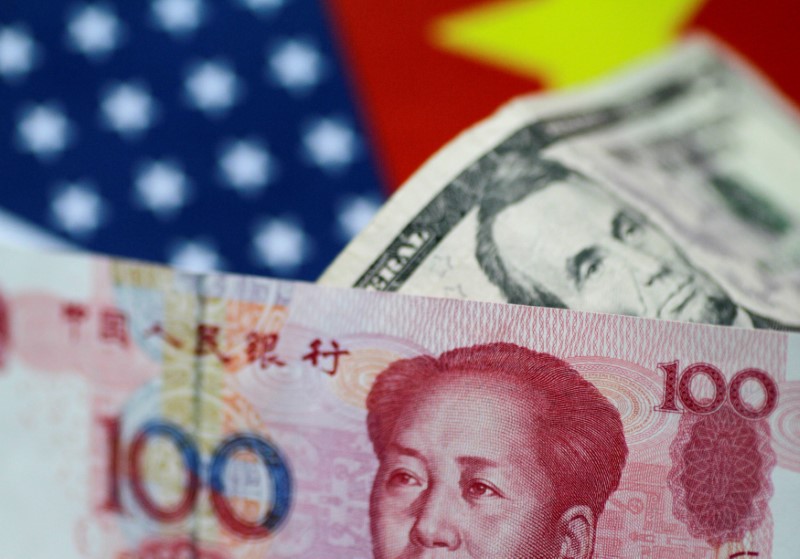Investing.com–Most Asian currencies remained in the water Thursday on concerns about tighter U.S. trade restrictions on China, while the Japanese yen held steady after rising sharply this week on a suspected intervention.
Regional currencies had gained ground in recent sessions on increased optimism that the Federal Reserve will cut interest rates, also leaving the dollar at its lowest in nearly four months.
The and rose slightly in Asian trading after falling this week as traders see a greater likelihood that the Fed will cut rates by at least 25 basis points in September.
The Japanese yen remains stable after suspected intervention
The Japanese yen weakened slightly on Thursday, after sharply strengthening in recent sessions. The pair rose 0.1% to 156.31 yen, after earlier falling to 155.38 yen.
The sharp appreciation of the yen, which sent the USDJPY down from almost 162 yen last week, led to increasing speculation that the Japanese government had intervened again in the currency markets.
While the yen received some support from the increased prospect of a US rate cut, it also faced weak local economic data, which limited the Bank of Japan’s room to tighten monetary policy.
This led traders to suspect that the currency’s recent appreciation was mainly due to government intervention. BOJ data shows that Tokyo spent more than $1 billion on market interventions last week.
Chinese Yuan Weak on Growing Trade Concerns
The Chinese yuan was flat on Thursday, with the pair steady below eight-month highs.
Sentiment toward China worsened when a Bloomberg report showed the U.S. is considering tighter restrictions on China’s technology and chip industries — a move that could anger Beijing and spark a renewed trade war among the world’s largest economies cause.
The report came as the yuan also grappled with concerns about a slowing economic recovery in China, especially after second-quarter gross domestic product data pointed to slowing economic growth.
Broader Asian currencies traded in a tight range as risk appetite was dented by concerns about China. Comments from US Republican presidential candidate Donald Trump that Taiwan should pay the US for defense supplies also weighed on sentiment.
The Australian dollar was an outlier, rising 0.1% after data from the country showed, raising the likelihood of a rate hike by the Reserve Bank.
The South Korean won pair rose 0.2%, while the Singapore dollar pair was flat.
The Indian rupee’s pair moved closer to a record high, with the currency seeing little relief despite increased optimism about the Indian economy.


